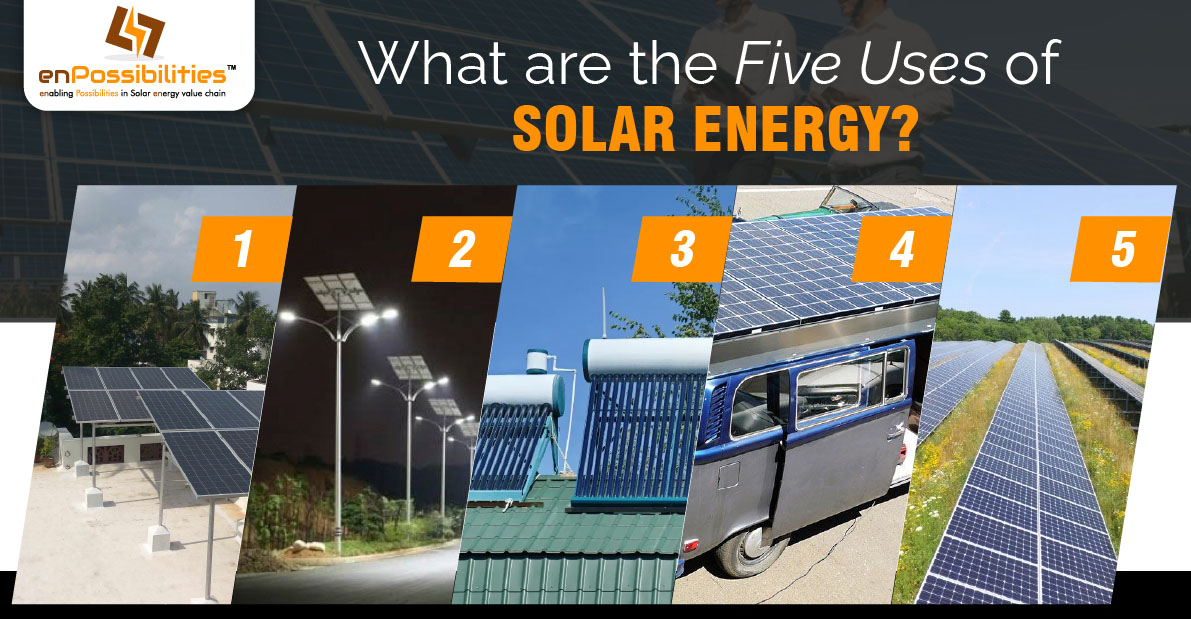Solar energy is becoming an increasingly popular source of renewable energy and for good reason. As technology has advanced, so too have the uses of solar energy. Today, many solar energy applications can power homes, businesses, and even entire communities.
Solar Panels for Residential Use
One of the most common uses of solar energy is the installation of solar panels on residential rooftops. Solar panels work by capturing sunlight and converting it into electricity through the use of photovoltaic (PV) cells. The electricity generated by solar panels can be used to power homes, and any excess energy can be sold back to the grid. Solar panels can be a cost-effective way to reduce energy bills and carbon emissions.
Solar-Powered Street Lighting
Another use of solar energy is the installation of solar-powered street lighting. These lighting systems use solar panels to generate electricity during the day, which is stored in batteries and used to power LED lights at night. Solar-powered street lighting is cost-effective and environmentally friendly, reducing energy bills and carbon emissions while providing a reliable lighting source for public areas.
Solar Water Heating
Solar water heating is a popular application of solar energy that uses solar panels to heat water for homes and businesses. Solar water heaters use the sun’s energy to heat water, which is then stored in a tank for later use. Solar water heating can be a cost-effective way to reduce energy bills, particularly in areas with high levels of sunlight.
Solar-Powered Vehicles
Solar-powered vehicles are an innovative use of solar energy that uses solar panels to power electric cars, buses, and other vehicles. Solar-powered vehicles can effectively reduce carbon emissions and dependence on fossil fuels, particularly in areas with high levels of sunlight. While still in development, solar-powered vehicles have the potential to revolutionize the transportation industry and significantly reduce greenhouse gas emissions.
Large-Scale Solar Farms
Large-scale solar farms are becoming an increasingly popular application of solar energy. These solar power plants use thousands of solar panels to generate large amounts of electricity for entire communities and businesses. Solar farms can be built on unused or underutilized land, providing a significant renewable energy source and reducing reliance on traditional sources such as coal and natural gas.
In addition to these five common uses of solar energy, many other innovative applications of solar energy are being developed. For example, solar-powered desalination plants are being developed to provide fresh water for communities in water-scarce areas. In contrast, solar-powered irrigation systems reduce water consumption in agriculture.
Overall, the uses of solar energy are diverse and constantly evolving. From solar panels for residential use to large-scale solar farms, solar energy is becoming an increasingly important renewable energy source for communities worldwide. As technology advances, we will see even more innovative uses of solar energy in the future, helping us reduce our carbon footprint and transition to a more sustainable energy future.

